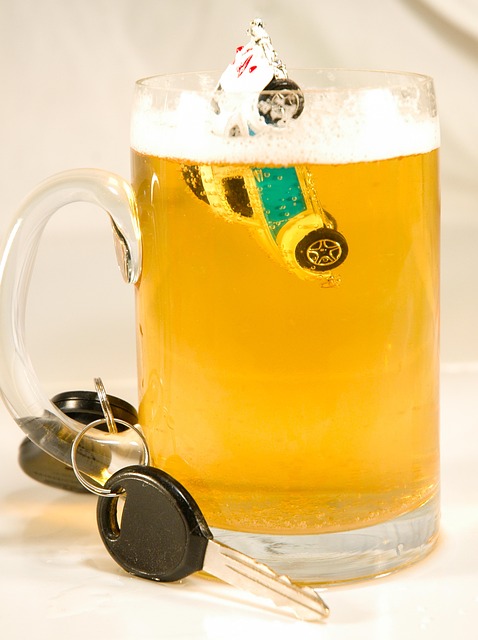DUI incidents pose severe risks to innocent pedestrians, highlighting the critical need to protect their rights. Support groups play a vital role in supporting individuals affected by DUIs, offering safe spaces for open communication, sharing experiences, and educating members about their rights. These peer networks foster empathy, belonging, and resilience, empowering members to navigate legal complexities and emotional trauma with dignity. Advocating for pedestrians' rights in DUI incidents is essential for healing, ensuring communities where everyone can move about without fear of harm caused by impaired driving.
Support groups play a pivotal role in the recovery process for individuals facing DUI charges, particularly focusing on healing and advocacy for pedestrians’ rights. This article delves into the profound impact of DUI incidents on pedestrians, highlighting the significance of support networks. We explore how these groups create safe spaces, foster empowerment, and advocate for the rights of those affected. Understanding the role of support in DUI recovery is crucial, especially when aiming to promote healing and prevent future collisions between safety and justice.
- Understanding DUI Incidents and Their Impact on Pedestrians
- The Role of Support Groups in DUI Recovery
- Creating a Safe Space: Building Support Group Environment
- Empowering Pedestrians: Advocating for Rights and Healing
Understanding DUI Incidents and Their Impact on Pedestrians

DUI incidents, or driving under the influence, have far-reaching consequences that extend beyond the driver and often affect innocent pedestrians. When an individual makes the reckless decision to get behind the wheel while impaired, the potential for harm to others increases significantly. Pedestrians, who may be crossing the street, waiting at a bus stop, or simply walking their dogs, become especially vulnerable. These incidents can result in severe injuries or even fatalities for pedestrians, leaving them and their families to navigate the physical and emotional trauma, as well as legal complexities that follow.
Understanding the impact of DUI incidents on pedestrians is crucial in advocating for their rights. Pedestrians have the right to move about safely without fear of being struck by an impaired driver. This includes the right to cross streets, enjoy public spaces, and live free from the risk of injury or death due to someone else’s poor decision-making. By recognizing the severity of these incidents, communities can push for stronger laws, improved education, and better enforcement to protect pedestrians and hold accountable those who drive under the influence.
The Role of Support Groups in DUI Recovery

Support groups play a pivotal role in the recovery journey for individuals facing DUI (Driving Under the Influence) charges. These peer-to-peer support networks offer a safe and non-judgmental space where those affected by alcohol-related driving can share their experiences, struggles, and victories. In a world where stigma often surrounds DUI incidents, support groups provide a sense of community, ensuring that drivers, passengers, and even pedestrians with rights in these situations feel understood and supported.
By participating in regular group meetings, individuals in recovery can connect with others who have faced similar challenges, fostering a profound sense of belonging. This shared understanding allows members to offer encouragement, practical advice, and strategies for navigating the complexities of DUI recovery. Moreover, support groups often provide resources and information about legal rights, particularly focusing on pedestrians’ rights in DUI incidents, ensuring that every participant is equipped with the knowledge needed to advocate for themselves during this difficult period.
Creating a Safe Space: Building Support Group Environment

In the context of recovery, creating a safe space is paramount for fostering open and honest communication among peers. Support groups for individuals navigating recovery from DUI incidents play a crucial role in this regard. The environment within these groups should encourage participants to share their experiences, fears, and victories without fear of judgment or recrimination—a sentiment that extends to the understanding of their pedestrians’ rights in DUI incidents. This atmosphere is cultivated through established ground rules that emphasize confidentiality, respect, and active listening.
The design of the support group environment should promote inclusivity, empathy, and a sense of belonging. Facilitators must ensure that every member feels heard, validated, and supported. By fostering such an environment, participants can begin to build resilience, gain new perspectives on their experiences, and discover resources they may not have known existed. This, in turn, enhances their understanding of their rights as pedestrians following a DUI arrest, empowering them to make informed decisions throughout the legal process.
Empowering Pedestrians: Advocating for Rights and Healing

In the context of recovery and support, advocating for pedestrians’ rights in DUI (drunk driving under influence) incidents is a vital step towards healing and empowerment. Many victims of such accidents often face challenges beyond physical injuries, including legal complexities and emotional trauma. Support groups that focus on these specific issues provide a safe space for individuals to share their experiences and gain support.
These groups not only offer reassurance but also educate members about their rights in legal proceedings, ensuring they are treated fairly. By raising awareness about pedestrians’ rights, these initiatives empower victims to navigate the aftermath of DUI incidents with dignity and strength. It’s a step towards creating a more understanding and supportive environment for those affected by such tragic events.
Support groups play a pivotal role in empowering those affected by DUI incidents, particularly pedestrians who often bear significant scars. By creating safe spaces where individuals can share experiences and advocate for their rights, these groups foster healing and promote understanding. In the context of DUI recovery, peer support is invaluable, encouraging accountability while offering comfort and guidance. Together, we can navigate the complexities of these incidents, ensuring pedestrians’ rights are upheld and their voices heard in the pursuit of justice and rehabilitation.






